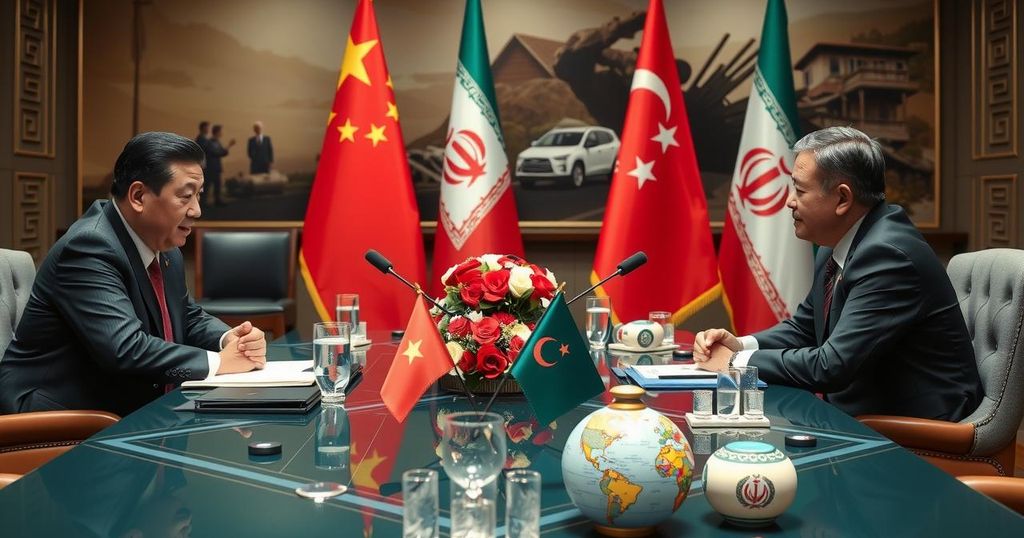China and Iran Strengthen Ties Amid Mideast Conflicts in Beijing Meeting
Chinese Foreign Minister Wang Yi and Iranian Foreign Minister Hossein Amir-Abdollahian met in Beijing to discuss mutual interests, emphasizing cooperation on issues surrounding the conflicts in Gaza and Lebanon. They resolved to support each other and enhance collaboration on multilateral platforms, illustrating a strategic partnership amid rising regional tensions.
In a significant diplomatic encounter, Chinese Foreign Minister Wang Yi met with Iranian Foreign Minister Hossein Amir-Abdollahian in Beijing. The discussions focused on various geopolitical challenges, particularly the ongoing conflicts in Gaza and Lebanon, where Iranian-aligned groups like Hamas and Hezbollah play pivotal roles. Both nations emphasized their resolve to support one another’s core interests and coordinate efforts to address these issues collaboratively on regional and multilateral fronts, further indicating a commitment to stabilizing the Middle East amid rising tensions.
The recent meeting between Chinese and Iranian foreign ministers underscores the evolving dynamics in the Middle East, particularly amidst external pressures and regional conflicts. With Tehran’s influence manifesting through proxies like Hamas and Hezbollah, China’s engagement indicates its strategic interest in maintaining stability in this volatile region. The discussions reflect both nations’ desire to foster deeper ties while addressing pressing issues affecting their security and economic cooperation, particularly in light of adversarial movements by Western powers.
In conclusion, the Beijing meeting illustrates a renewed commitment between China and Iran to bolster their cooperation amidst regional turmoil. By addressing the conflicts in Gaza and Lebanon, the two countries signify a mutual understanding of their geopolitical stakes, navigating a landscape replete with challenges. Their collaboration is poised to strengthen both their positions within the Global South and their collective voice in international affairs.
Original Source: www.scmp.com




Post Comment